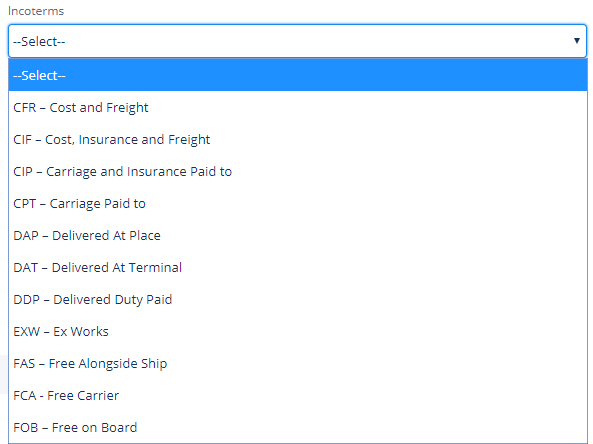DDP Incoterms Shipments Explained: (in 5 Steps)
DDP incoterms. It’s 1 of 13 currently used.
The initials stand for Delivered Duty Paid. And it’s a type of responsibility in international commerce.
We’ll discuss what that is – and who it suits best!
First – How it Differs From Other Incoterms.
Let’s start with a basic concept.
Incoterms are a “scale.” They’re a distribution of shipment responsibilities.
On one end, you have the “seller”. And on the other is the “buyer.”
Where DDP Lies on The Scale.
It’ on one extreme of it. Specifically, it places maximum responsibility on the seller.
It’s the opposite of “EXW” which places maximum responsibility on the buyer.
And we should note that DDP applies to all transport forms. It applies to land freight, ocean freight, and air freight.
DDP Inocterms – What Responsibilities Do Sellers Have?
Everything, except unloading at the final destination.
This includes the process at country of origin. It includes loading/unloading, all port processes, paperwork, and clearing customs.
Then there’s insurance. A seller pays insurance on with DDP shipping.
After reaching the delivery country, the seller unloads everything. They then carry the package to the final stop.
There, they’re responsible for import duties and taxes.
So this form of shipment places massive risk on the seller.
Second – Freight Shipment Costs.
The seller incurs all costs. They pay for all damages during transportation.
So they’re forced to insure packages. After all, no seller wants to pay for shipment damages.
They’d rather have an insurance company do the refunding.
Other Costs.
We mentioned import duties and taxes. But sellers also deal with clearance.
This includes registration and import/export license costs. And if the paperwork is incorrect, the shipment gets halted.
This means delays. And with delays come penalties, which are extra costs.
So DDP is expensive for sellers. And they must be aware of regulations before accepting this agreement.
Third – Who Benefits From DDP Incoterms?
Obviously, the buyers. But buyers only benefit cost-wise.
They pay almost nothing to receive shipments. They place the order, while waiting for the end product’s arrival.
However.
They only benefit if they can pursue sellers not fulfilling their obligations.
This is difficult in international commerce. After all, this might require an international court’s arbitration.
The costs for those can get expensive. And in many situations, the costs don’t justify the benefits.
Do Sellers Benefit From DDP?
Oddly enough, they do. And sometimes, it’s a safer option than pushing away shipment responsibilities!
Why? Because with maximum responsibility comes maximum control.
It’s necessary for manufacturers that ship fragile or breakable items. This includes glassware, expensive machines, etc.
With DDP, sellers ensure that products arrive intact. They can remove unwanted parties from intercepting the shipment.
Not to mention, they choose the shipment route. And, they better control shipment schedules too!
Fourth – When Should Sellers Use DDP shipping?
We mentioned fragile and breakable items.
But also, they’re necessary for businesses that ship “physical products vital to their services.”
DDP Freight Example.
A business might run an e-wallet company. And part of their service includes shipping cards for account holders.
Those products must arrive. Otherwise, the business’ services are unusable.
DDP terms ensure that. They give sellers supervision over the shipment. And it ensures that “vital products” arrive.
Another Example of DDP Freight.
How about products that require assembly?
Maybe a business sells expensive machinery, but it ships them in parts. And it requires special employees to piece them together.
Obviously, DDP shipping terms works here. It ensures control over the machine parts – so that nothing is damaged.
Thus, when it’s time to assemble, there are no delays. And there are less “surprise costs” involved.
Fifth – Covering Damaged Shipments.
We mentioned before that sellers pay insurance.
As for coverage, damage the insurance company pays that to sellers. From there, sellers refund buyers for damages.
So in a sense, sellers have control over damages.
However, this isn’t an excuse to delay refunds. A business that wants a clear reputation should care for bad shipments.
Otherwise, no one will buy. And it’ll make finding other international partners difficult!
To Summarize DDP Shipping.
For DDP, a seller gets maximum control + responsibility.
It works for some models, but not others. Study the incoterms available, and adopt the shipment terms that suit you best!
Other incoterms such FCA, FOB, CIF and EX Works can are use in shipping industry. Learn more here! and calculate your shipping cost before you decide what is the best for you


